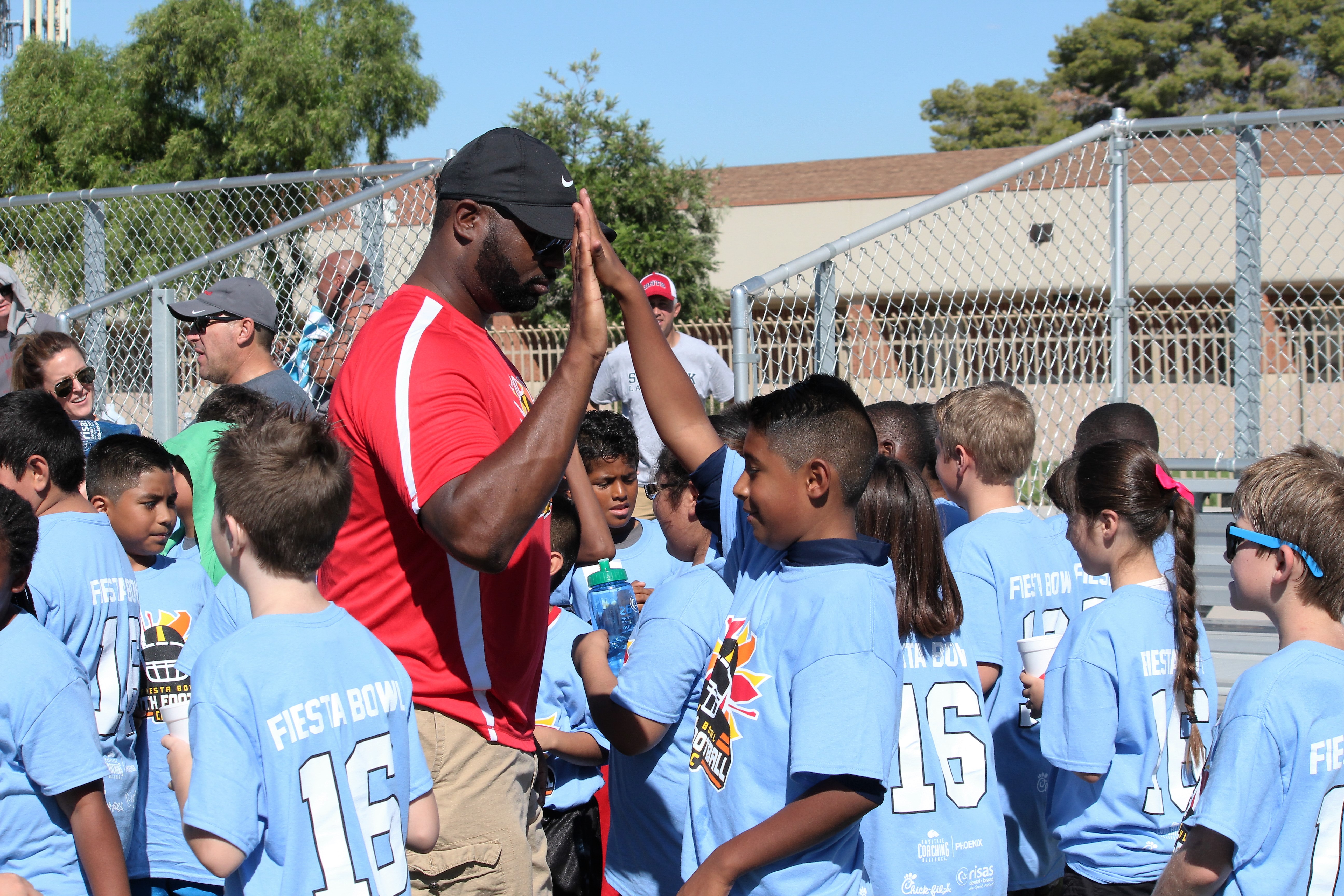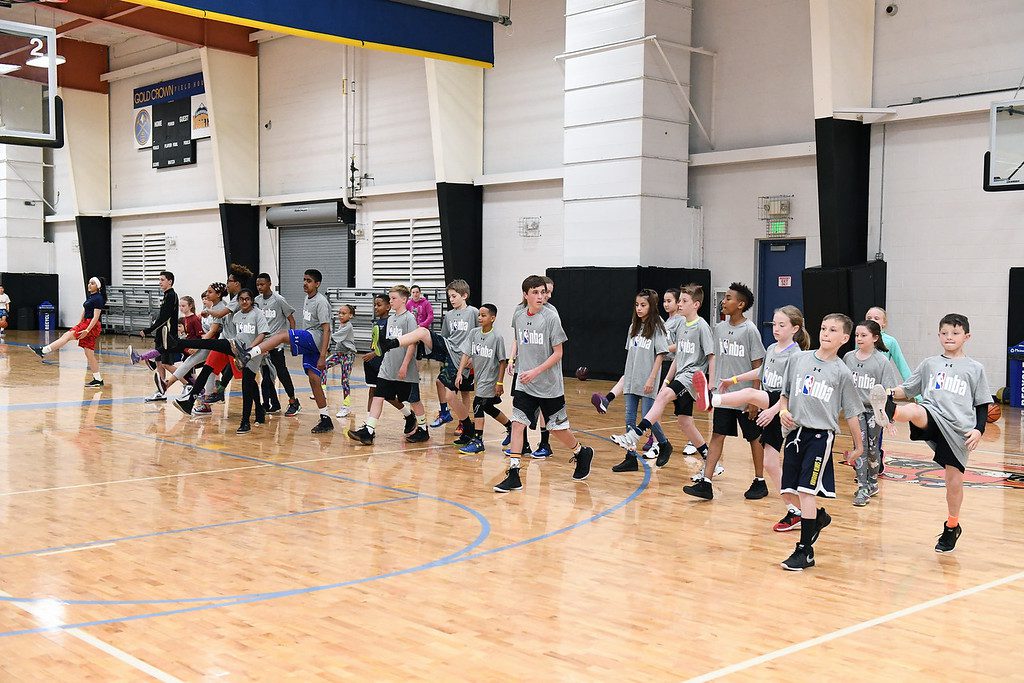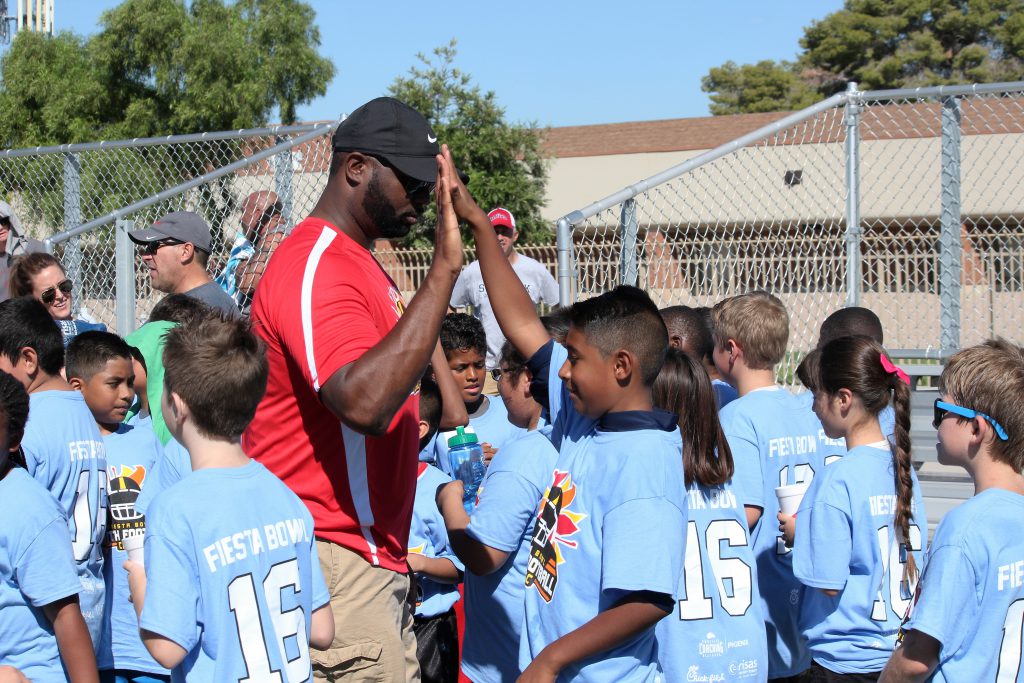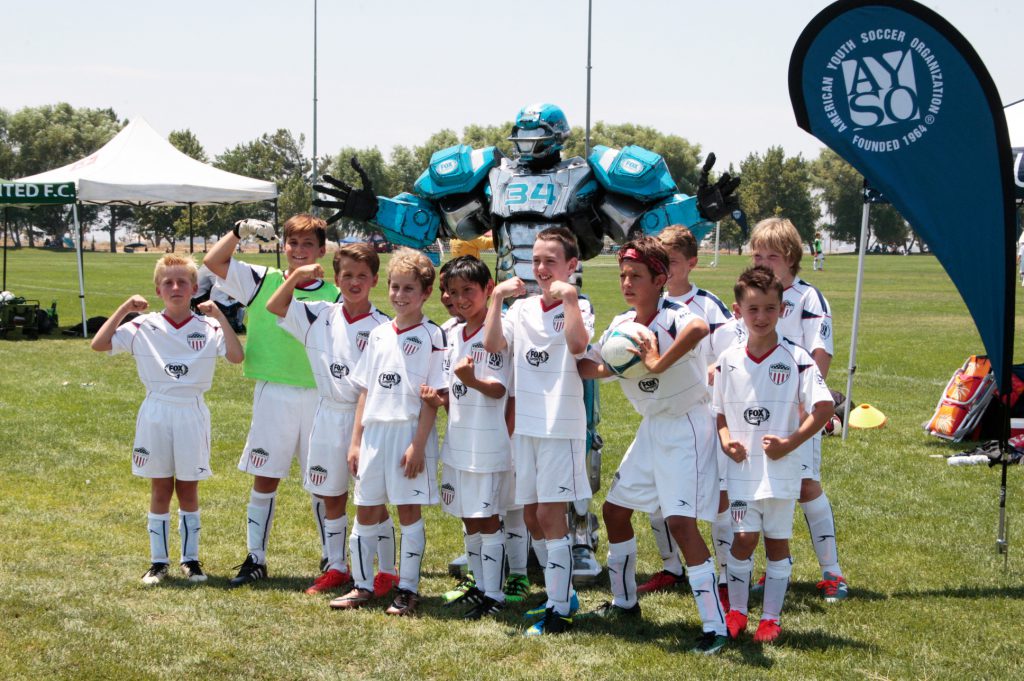
Positive Coaching Alliance Arizona: Filling Kids’ Emotional Tanks
Positive Coaching Alliance (PCA) is attempting to change the competitive sports dynamics for children. We’re all familiar with the tough coach who insults the players and uses rough language to spur a team on to try harder. PCA actively works to do away with that stereotype, once and for all, believing that a kinder approach yields better results. As a chapter of this organization, Positive Coaching Alliance Arizona works hard to ensure that kids never come in contact with that nasty sort of coach, because PCAA believes in building kids, and not destroying them for the sake of a game.
At Kars4Kids, we like their style. We’re all for building kids with positivity. So we gave PCAA a small grant. We spoke to Tamara Clark, Arizona partnership manager for PCA, to learn more.
Kars4Kids: Your mission statement says that Positive Coaching Alliance develops “better athletes, better people.” What qualities make up a better athlete other than innate physical gifts?
Tamara Clark: We use a lot of acronyms in our workshops to help athletes better understand their role. One acronym we use all the time is ROOTS. It stands for Respect for Opponents, Officials, Teammates, and Self. We also have developed a Triple Impact Competitor. In other words, we believe the qualities that an athlete should possess to be a Triple Impact Competitor is Bettering Themselves, Bettering their Teammates, and Bettering, or Honoring, the Game.
Kars4Kids: How does being a better athlete connect to being a better person?
Tamara Clark: At Positive Coaching Alliance, this means that sports are tremendously impactful on kids throughout their lives. The qualities you learn while participating in sports you can take with you into the real world. If you can be an all-around better athlete on the field, it will easily transition to being a better person off the field. Studies show that kids who participate in sports at a young age tend to do better in school, stay in school, stay away from drugs and gangs, and tend to graduate a higher rate. This is because they learned discipline, respect for not only themselves but others, work ethic, determination, and how to be a part of a team or be held liable for something.

Kars4Kids: Tell us about your live workshops.
Tamara Clark: Our live workshops range from 30–120 minutes and we currently offer about 12 different live workshops. We have certified trainers who go through an extensive training to get certified in the workshops they are teaching. Most of our trainers come from sports, having coached, taught, or played collegiate sports or even on professional teams. We have workshops tailored to coaches, parents, leaders of organizations, and athletes. Each workshop is tailored to the group that is taught, the workshops are interactive, and we even offer resources before, during, and after the workshop is over.

Kars4Kids: Is part of positive coaching teaching children how to be graceful losers?
Tamara Clark: You can put it that way. We focus heavily on winning and teaching life lessons. Our goal is to get people away from the “win-at-all-costs” mentality that has been developed for years. We absolutely believe winning is important and should be an ultimate goal, but we need to know how to teach those life lessons when losing is the outcome.
Kars4Kids: What is a Double-Goal Coach and how does s/he differ from a garden variety sports coach?
Tamara Clark: A Double-Goal Coach has two goals; Winning and Teaching Life Lessons. A garden variety sports coach can be your typical win-at-all-costs coach or someone who will choose yelling and cussing to get a point across. We know that studies show that type of screaming coach is not successful anymore and that kids are more likely to win when you are positive and use our 5:1 ratio, which is for every negative you try and relay 5 positives to your team or an individual player.

Kars4Kids: What does a parent have to do to become a Second-Goal Parent?
Tamara Clark: A Second-Goal Parent focuses on the second goal of being a Double-Goal Coach; Teaching Life Lessons. All too often kids drop out of sports because they aren’t having fun and parents have a lot to do with that. They tend to think they know more than the coach or try and coach on the sideline. The worst is when parents act disrespectful to others including the coach, other parents, the other team, or even their own child.
In our workshop we teach that it’s important to be a parent after a game and not a coach; don’t scold your kids when they do something wrong; and be an example at games from which your kids can be proud of and can learn a positive lesson.
Kars4Kids: What does it mean to “flush our mistakes.” Does that mean bringing them to light and examining and learning from them?
Tamara Clark: No, actually it means when a mistake happens you have to be okay with letting it go in the moment. We actually encourage coaches and athletes to have a mistake ritual when a mistake happens in the moment. A lot of teams create the mistake ritual together as a team building piece.
I have seen kids do the flushing of a toilet motion on a field after losing and everyone kind of laughs to lighten the mood which helps kids realize mistakes are okay but you have to be able to bounce back.
Kars4Kids: What does it mean to have a full “emotional tank?” Is that about getting enough praise?
Tamara Clark: During our workshops we compare an emotional tank to a car fuel tank. When the gas tank in your car is full you can go further and do more. When it is empty you can’t go far and you run out of gas. It’s the same concept here.
If someone is feeding you the 5:1 ratio, your tank is going to increase and stay full which will allow you to go further and do more. Being positive and giving meaningful feedback are 2 key items that build an emotional tank. An emotional tank can be refilled even through simple gestures or physical movements, like, for instance, a high five.
Kars4Kids: What’s next for Positive Coaching Alliance?
Tamara Clark: As a whole company we just celebrated 20 years so we are looking forward to the next 20 years. As for our Arizona Chapter we just hosted our first Positive Impact Awards where we honored 9 athletes from all over Arizona who embody a Triple Impact Competitor, with scholarships. We also awarded a Community Impact Award and a Double-Goal Coach Champions Award as well as raising awareness and money.
We plan on being the model chapter for all other future and current chapters. We are working on raising money through donors, sponsorships and grants so that schools and organizations don’t have to pay for our workshops out of their own budgets. Our goal is to get our workshops to as many athletes as possible in the entire state of Arizona.